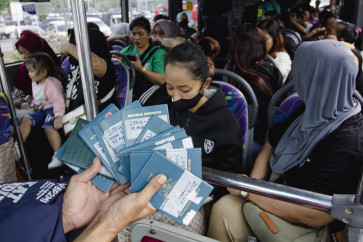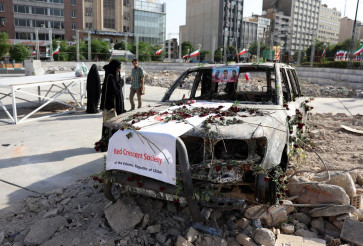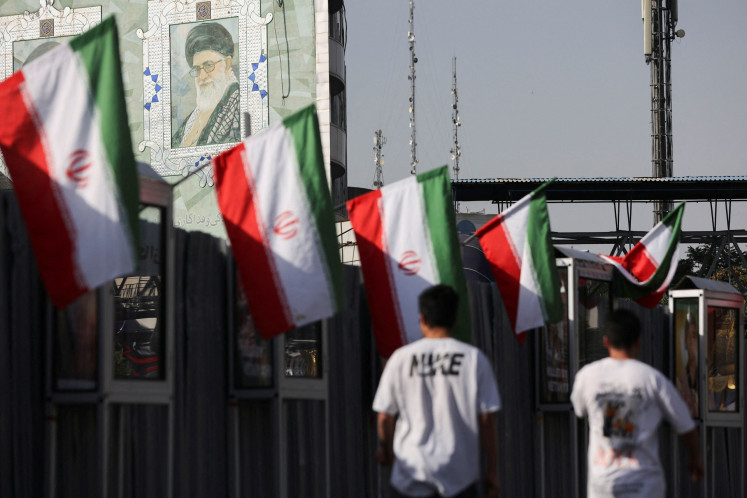Popular Reads
Top Results
Can't find what you're looking for?
View all search resultsPopular Reads
Top Results
Can't find what you're looking for?
View all search resultsFast-paced ‘tarawih’ attracts locals
Tarawih is a night prayer commonly performed by Muslims during the fasting month of Ramadan
Change text size
Gift Premium Articles
to Anyone

T
em>Tarawih is a night prayer commonly performed by Muslims during the fasting month of Ramadan. They spend at least 10 to 30 minutes every night performing it together in mosques or prayer rooms.
But Mambaul Hikam Islamic boarding school in Udanawu, Blitar, East Java, has a unique tradition of holding a very express tarawih prayer, spending only 10 minutes or less.
The Jakarta Post visited the school’s mosque on Thursday evening and found out there were a lot of people from inside and outside the city joining the prayer in the mosque as they were curious about the fast tarawih.
Khoirul, for instance, drove 15 kilometers from the nearby city of Tulungagung to perform tarawih in the mosque. “I come here to know how it feels to perform the fast tarawih prayer. Usually, my body feels fresher after doing it,” said the 30-year-old man.
The mosque can accommodate more than 500 people. But before isya, the regular night prayer, which is usually held before the tarawih, the number of attendees had exceeded the capacity, and many of them had to lay plastic sheets around the mosque area to use as a prayer mat.
School leader Dliyauddin Azzamzami Zubaidi led the tarawih and recited Al Fatihah (the first chapter of the Quran and a compulsory recital every prayer) so fast that no one could even clearly hear the pronunciation. From one rakaat (prayer segment) to another, it took no more than 7 seconds.
Some people looked overwhelmed when following the face-paced movements and Quran recitals during the prayer. It looked more like an exercise class.
The tarawih was completed in nine minutes.
“It indeed only takes between 8 and 10 minutes to do tarawih here,” said Andi, 27, one of the participants, after performing the prayer. Sweat was all over his face because of the physical work.
Dliyauddin said the fast tarawih prayer had become a tradition in the mosque since his grandfather, Abdul Gofur, established the Islamic school in 1907.
Dliyauddin went on to say that his grandfather initiated the fast-paced prayer so that people could finish it faster without violating any sharia regulations.
“[People] have already fasted for hours, and then they have to perform prayers in the evening, while the next day they still have to go to work and fast again. That’s why my grandfather initiated this tradition,” Dliyauddin said.
Mambaul Hikam’s express tarawih has gone viral on social media, through a video showing people doing the fast movements during the prayer. Many people have been drawn to it.
Dliyauddin said a representative from the Religious Affairs Ministry had observed the prayer and declared nothing wrong with the practice that the school initiated.
“I showed them the reference and the fiqh [Islamic jurisprudence]. They understand that there’s nothing wrong with it,” he said.
An executive of Nahdlatul Ulama (NU) Blitar office, Abdul Munib, said Mambaul Hikam was one of most respected Islamic boarding schools regarded by many NU followers in the regency. NU is the country’s largest Muslim organization.
“The school still refers to salafism teaching and sufism.” Abdul said.









